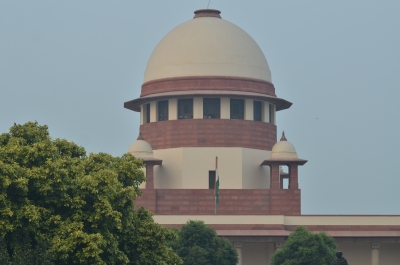New Delhi, Feb 13 (IANS) The Supreme Court on Monday junked a plea challenging the setting up of a Delimitation Commission to redraw the assembly and Lok Sabha constituencies in the Union Territory of Jammu and Kashmir.
A bench of Justices Sanjay Kishan Kaul and Abhay S. Oka said there is no illegality associated with the establishment of the Delimitation Commission under the impugned order issued on March 6, 2020. “There is no illegality associated with the delimitation/readjustment of Parliamentary constituencies of the Union Territory of J & K undertaken by the Delimitation Commission,” it added.
The top court observed that the position of northeastern states — Assam, Arunachal Pradesh, Manipur and Nagaland — with respect to conduct of delimitation exercise cannot be compared to that of the newly-created UT of Jammu & Kashmir (J&K).
“The position and the status of the newly-created Union Territory of J&K under the Constitution is completely different from the four northeastern States. In its applicability to the Union Territory of J & K, Sections 4 and 9 of the Delimitation Act, 2002 stand amended by requiring readjustment to be carried out on the basis of the census figures of 2011.”
“In case of the northeastern States, there is no such amendment. Therefore, two unequal cannot be treated as equals. Hence, the argument based on the violation of Constitutional provisions including Article 14 deserves to be rejected.”
The top court dismissed the plea filed by Srinagar residents Haji Abdul Gani Khan and Dr Mohammad Ayub Mattoo challenging the validity of March 6, 2020 order without challenging the Presidential Order bifurcating the state into two Union Territories or the J&K Reorganisation Act providing for the operation of Delimitation Act, 2002 within J&K and increase of seats from 107 to 114.
The bench accepted Centre’s contention that petitioners filed the plea in March last year when the Delimitation Commission’s report “was substantially acted upon” with the publication of draft order.
It said the delimitation exercise was necessary as total assembly constituencies were increased from 107 to 114 under the J&K Reorganisation Act passed by Parliament in 2019.
However, it clarified that it had not examined the validity of the exercise of power, since the issue of J&K reorganisation and the Presidential Order of August 2019 scrapping Article 370, which granted special status to J&K, is pending in a separate proceeding before it.
In a 54-page judgment, Justice Oka, who authored the judgment on behalf of the bench, said: “We are aware that the issue of the validity of the exercise of the said powers is the subject matter of petitions pending before this Court. We have not dealt with the issue of validity. Nothing stated in this judgment shall be construed as giving our imprimatur to the exercise of powers under clauses (1) and (3) of Article 370 of the Constitution.”
The bench noted that though an opportunity was available to the petitioners to challenge the provisions of the J&K Reorganisation Act, they had chosen not to do so.
“We may also note here that the petitioners are also not questioning the 2019 Presidential Order and the said declaration. Therefore, we will have to proceed on the footing that the 2019 Presidential Order, the said declaration and the provisions of the J&K Reorganisation Act are valid. It is in this context that the submissions made across the bar will have to be appreciated,” it added.
“We may, however, clarify that the findings rendered in the judgment are on the footing that the exercise of power made in the year 2019 under clauses (1) and (3) of Article 370 of the Constitution is valid,” the bench said.
–IANS
ss/vd





